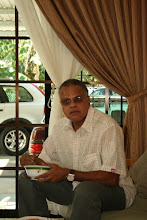Losing speech after a stroke is not uncommon. But acquiring a foreign accent is after stroke is amazing. Brain is known to re wire itself after a stroke but speaking in foreign accent is unheard of. I have not any way..
Foreign accent syndrome (FAS) is a neurological condition that is acquired following a stroke or some other form of brain injury. It occurs as a result of damage to the brain's speech motor centres, so that syllables are mispronounced, making one sound as if they are speaking their native language in a foreign accent.
FAS is extremely rare, with only around 50 reported cases since 1941. Two of these were reported in stroke victims in recent years: Linda Walker, a 62-year-old woman from Newcastle, began speaking in an accent that was described as a mixture of Jamaican, Canadian and Slovakian, whereas Tiffany Roberts, a 63-year-old American, began speaking in what sounds like a British accent.
Neurologists from Toronto now report the first Canadian case study of the condition. Writing in this month's issue of the Canadian Journal of Neurological Sciences, Naidoo et al describe the case of a stroke patient named Rosemary Dore, who previously had a native Southern Ontario accent, but is now speaking with an East Coast Canadian accent, despite never having lived in that part of the country.
This is out in news paper too.
Foreign accent syndrome (FAS) is a neurological condition that is acquired following a stroke or some other form of brain injury. It occurs as a result of damage to the brain's speech motor centres, so that syllables are mispronounced, making one sound as if they are speaking their native language in a foreign accent.
FAS is extremely rare, with only around 50 reported cases since 1941. Two of these were reported in stroke victims in recent years: Linda Walker, a 62-year-old woman from Newcastle, began speaking in an accent that was described as a mixture of Jamaican, Canadian and Slovakian, whereas Tiffany Roberts, a 63-year-old American, began speaking in what sounds like a British accent.
Neurologists from Toronto now report the first Canadian case study of the condition. Writing in this month's issue of the Canadian Journal of Neurological Sciences, Naidoo et al describe the case of a stroke patient named Rosemary Dore, who previously had a native Southern Ontario accent, but is now speaking with an East Coast Canadian accent, despite never having lived in that part of the country.
This is out in news paper too.



0 comments:
Post a Comment